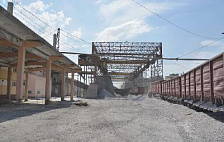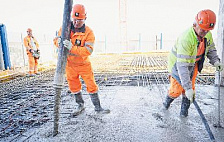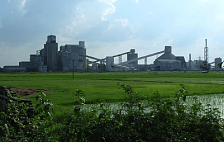BEUMER sales manager Kay Wieczorek is sure there will be a lot of changes in the cement industry in the coming years. As COVID-19 makes personal interaction with customers nearly impossible, owners ought to be careful when making investments. Nevertheless, the crisis offers many opportunities for system providers as demand for digitalisation, automation and AF solutions grows.
"Over the past months, COVID-19 has forced us to cope with some changes. This will probably bother us even more in the colder months," Kay Wieczorek is convinced. He is head of sales for the cement industry at BEUMER Group, a company which since its foundation in 1935 develops future-oriented solutions for the construction and cement industry. "Even if the COVID-19 figures are currently in progress, I am sure that BEUMER Group will come through this crisis pretty well; we just have to be well prepared for it." This means: recognising trends and offering the right solutions.
Digitalisation
Contacting customers is important in a sector where business deals are concluded with a firm handshake first, and with a signature second.
"The pandemic is massively changing our travel behaviour and the way we hold meetings and sign contracts," says Kay Wieczorek. — The increasing digitalisation will make its way into the rather conservative cement industry.”
Though many cement plant owners remain hesitant in reaction to this development, they cannot ignore the advantages any longer.
"We may not be on site at the customers' premises right now, but we can still support them, for example with our BEUMER Smart Glasses," says the cement expert.
The system provider is available around the clock via the hotline. But what about complex problems which cannot be clearly communicated over the phone? Modern digital solutions, like BEUMER Smart Glasses, enable customers to work with service technicians right on site providing them with all important information displayed live off of the built-in camera.
Digitalization allows users to be guided through the commissioning process, step by step or execute remote maintenance 24/7 with no need to travel long distances. However, Wieczorek is convinced that though this is a good alternative for the cement sector, personal contact is still imperative.
Alternative fuels
"Alternative fuels are another great trend in the cement industry," recognises Kay Wieczorek. "World-wide, this is also promoted by politicians in various countries in order to get air pollution under control".Since system providers develop solutions for the whole material flow chain, AF materials provide a market for solutions such as unloading, storing, weighing, conveying, and control feeding.
CO2 emissions can be further reduced not only through Af use and energy-efficient systems.
An important aspect is the transport of raw materials from the quarry to the plant or the port. The routes often lead through rough terrain or even populated areas. This is a task companies often handle by trucks, which emit large quantities of carbon dioxide. Belt conveyors and closed Pipe Conveyors are more environmentally friendly and can be considerably more economical in handling such tasks.








